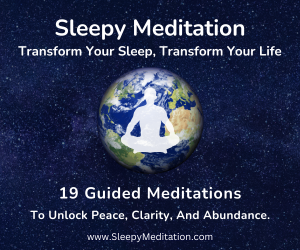Deep Sleep: Guided Meditation for Ultimate Relaxation
Deep sleep is essential for our overall health and well-being. It is during deep sleep that our bodies repair and rejuvenate, allowing us to wake up feeling refreshed and energized. Unfortunately, many people struggle with falling asleep and staying asleep, leading to feelings of exhaustion and irritability the next day. Guided meditation can be a powerful tool to help promote deep sleep and relaxation.
The Benefits of Deep Sleep
Deep sleep, also known as slow-wave sleep, is the stage of sleep in which the body repairs and regenerates tissues, builds bone and muscle, and strengthens the immune system. It is during deep sleep that the brain consolidates memories and processes information, leading to improved cognitive function and mental clarity. Deep sleep is also essential for regulating hormones, such as cortisol and growth hormone, which play a crucial role in overall health and well-being.
Some of the benefits of deep sleep include:
- Improved memory and cognitive function
- Enhanced mood and emotional well-being
- Increased energy and productivity
- Reduced risk of chronic diseases, such as heart disease and diabetes
- Quicker recovery from illness and injury
Guided Meditation for Deep Sleep
Guided meditation is a powerful tool for promoting deep sleep and relaxation. By focusing on the present moment and calming the mind, guided meditation can help reduce stress and anxiety, two common culprits of sleep disturbances. Guided meditation can also help quiet the mind and prepare the body for rest, making it easier to fall asleep and stay asleep throughout the night.
During guided meditation for deep sleep, a trained meditation guide will lead you through a series of relaxation techniques, such as deep breathing, body scanning, and visualization exercises. These techniques are designed to help you let go of any tension or worries from the day and create a sense of calm and peace in both the mind and body. By practicing guided meditation regularly, you can train your brain to enter a state of deep relaxation more easily, leading to improved sleep quality and overall well-being.
Common Questions About Deep Sleep and Guided Meditation
1. How long should I meditate for deep sleep?
While the ideal length of time for meditation can vary from person to person, most experts recommend practicing guided meditation for deep sleep for at least 10-20 minutes before bed. This allows enough time for the body and mind to relax and unwind, making it easier to fall asleep and stay asleep throughout the night.
2. Can guided meditation help with insomnia?
Yes, guided meditation can be a helpful tool for managing insomnia. By calming the mind and reducing stress and anxiety, guided meditation can help promote deep relaxation and improve sleep quality. It is important to practice guided meditation regularly and consistently to see lasting results.
3. Are there any specific techniques I should try for deep sleep?
Some popular techniques for deep sleep include deep breathing exercises, progressive muscle relaxation, body scanning, and visualization exercises. Experiment with different techniques to see what works best for you and incorporate them into your guided meditation practice for optimal results.
Conclusion
Deep sleep is essential for our overall health and well-being, yet many people struggle to achieve the restorative sleep they need. Guided meditation can be a powerful tool for promoting deep sleep and relaxation, helping to calm the mind and prepare the body for rest. By practicing guided meditation regularly and incorporating relaxation techniques into your bedtime routine, you can improve your sleep quality and wake up feeling refreshed and energized each day.
Remember to be patient and consistent with your guided meditation practice, as it may take time to see lasting results. By making deep sleep a priority and taking steps to promote relaxation and stress reduction, you can enjoy the many benefits of restorative sleep and improve your overall quality of life.



































































